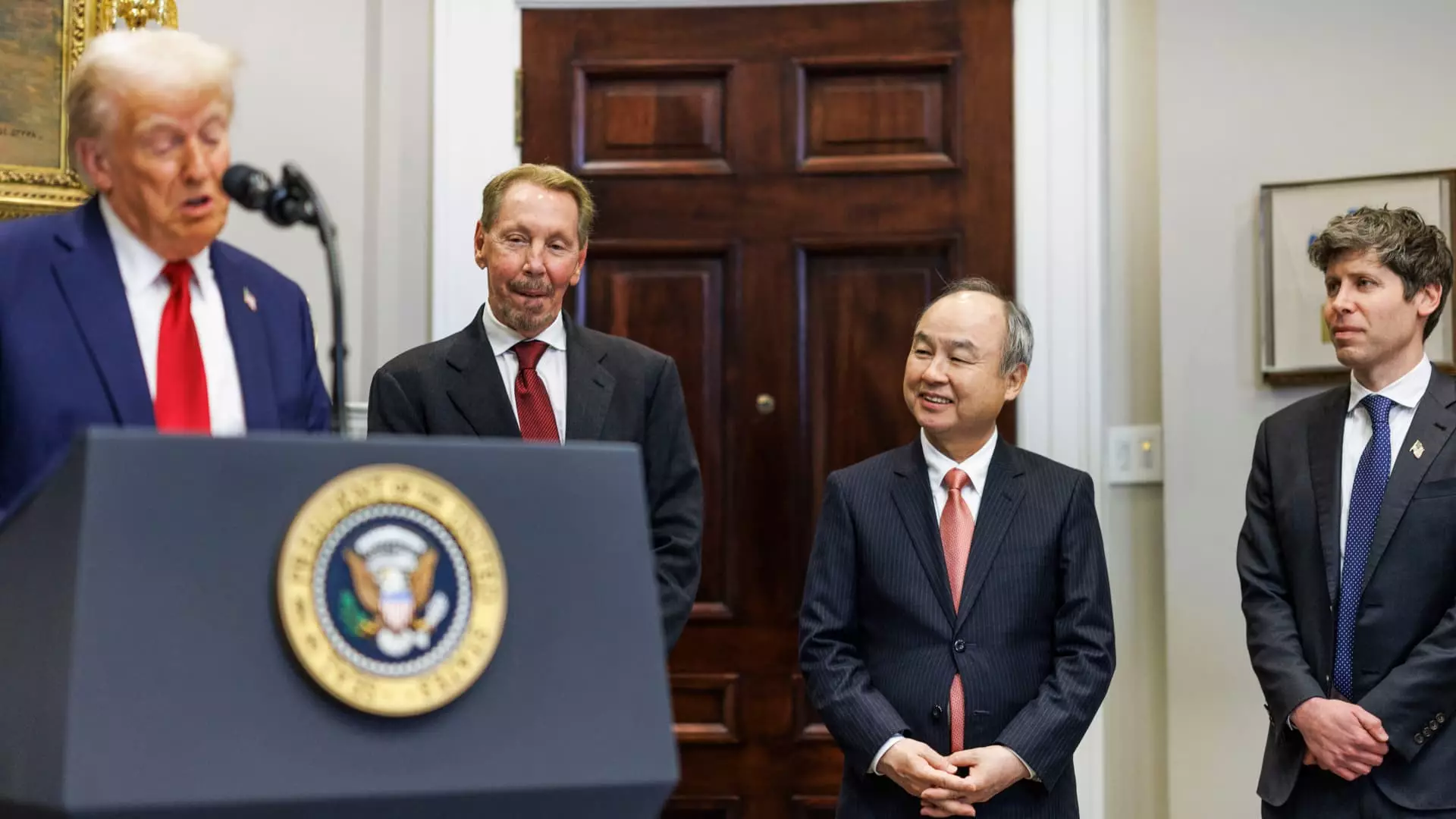The technological landscape is ever-evolving, and the relationship between Microsoft and OpenAI is a clear example of these shifts. Traditionally viewed as inseparable allies, the dynamics between these two giants are changing, raising important questions about collaboration and competition in the realm of artificial intelligence (AI). Recent developments, highlighted in Microsoft’s blog post, indicate that it will no longer serve as the exclusive provider of computing resources for OpenAI. While Microsoft retains rights such as the “right of first refusal” for additional capacity, the changes mark a significant shift in their strategic partnership.
The backdrop for these changes is the recently announced Stargate Project, an ambitious joint initiative launched by President Donald Trump alongside key players in the tech industry, including OpenAI, Oracle, and Softbank. This project is poised to invest billions into AI infrastructure within the United States, with initial commitments amounting to an impressive $100 billion and projections of reaching up to $500 billion over the next four years. This substantial financial backing signifies an unprecedented collaboration aimed at enhancing the technological framework supporting AI development. The setup, as elucidated by Oracle, is already underway, with major data center constructions taking shape in Texas, designed to bolster the infrastructure for AI services in the near future.
While Microsoft has long been a frontrunner in the partnership with OpenAI, the entrance of Oracle as a “key initial technology partner” introduces fresh competition in the cloud service arena. Larry Ellison, Oracle’s Chairman, celebrated the construction of vast data centers, reflecting the scale and ambition of the Stargate Project. With technology companies racing to establish a seemingly comprehensive backbone for AI, Oracle’s involvement signifies a shift that could disrupt the existing balance of power in the cloud computing sector, where Amazon, Microsoft, and Google previously dominated.
Despite the evolving dynamics, Microsoft still enjoys certain privileges in its partnership with OpenAI. The company has consistently invested in OpenAI, most notably with a $1 billion investment in 2019. This significant outlay led to a commitment from OpenAI to migrate its operations to Microsoft’s Azure cloud platform. Moreover, as OpenAI’s computing demands grow, Microsoft has addressed these needs through contracts with third-party cloud providers, such as CoreWeave, thereby maintaining a foothold in the burgeoning AI space.
However, the relationship is not without its challenges. Microsoft’s exclusive rights to OpenAI’s intellectual property, particularly surrounding products like Copilot, remain intact. Yet, the undercurrent of tension is evident, especially following Microsoft’s characterization of OpenAI as a competitor in recent months. CEO Satya Nadella has acknowledged the ambitious goals of OpenAI’s leadership, suggesting a nuanced balance of cooperation and rivalry that could redefine their ongoing engagement.
As the landscape of artificial intelligence continues to mature, the path forward for Microsoft and OpenAI is likely to be a blend of cooperation and competition. The complexities of their relationship require both parties to navigate their ambitions carefully, ensuring that collaborations remain fruitful amid individual goals. While Microsoft has reiterated its commitment to supporting OpenAI through new Azure contracts, the potential for competitive tensions looms larger than ever, particularly as new players like Oracle escalate their presence in the AI infrastructure domain.
As organizations around the globe ramp up their investments in AI technologies, the future of Microsoft’s partnership with OpenAI will be closely watched. The balance of staying at the forefront of innovation while managing competitive pressures will be crucial. It remains to be seen whether the evolving nature of this relationship will yield groundbreaking advancements or strain the collaboration that both companies have cultivated over the years. The coming months and years will undoubtedly be pivotal in determining the trajectory of this partnership in an increasingly competitive landscape.


Leave a Reply